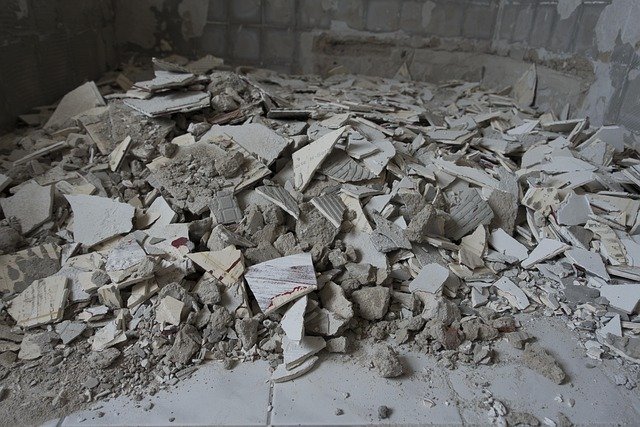Politics
To hide the cost of renovating the plane Qatar donated to President Trump, the Air Force appears to have tucked it inside an over-budget, behind-schedule nuclear modernization program.

By David E. Sanger and Eric Schmitt, New York Times Service
6 minutes to read
Share
Share
Send this article to your social connections.
WASHINGTON — President Donald Trump makes no secret of his displeasure over the cost of renovating the Federal Reserve headquarters — around $2.5 billion, or even higher by the president’s accounting.
But getting the White House to discuss another of Washington’s expensive renovation projects, the cost of refurbishing a “free” Air Force One from Qatar, is quite another matter.
Officially, and conveniently, the price tag has been classified. But even by Washington standards, where “black budgets” are often used as an excuse to avoid revealing the cost of outdated spy satellites and lavish end-of-year parties, the techniques being used to hide the cost of Trump’s pet project are inventive.
Which may explain why no one wants to discuss a mysterious, $934 million transfer of funds from one of the Pentagon’s most over-budget, out-of-control projects — the modernization of America’s aging, ground-based nuclear missiles.
In recent weeks, congressional budget sleuths have come to think that amount, slipped into an obscure Pentagon document sent to Capitol Hill as a “transfer” to an unnamed classified project, almost certainly includes the renovation of the new, gold-adorned Air Force One that Trump desperately wants in the air before his term is over. (It is not clear if the entire transfer will be devoted to stripping the new Air Force One back to its airframe, but Air Force officials privately acknowledge dipping into nuclear modernization funds for the complex project.)
Qatar’s defense minister and Defense Secretary Pete Hegseth signed the final memorandum of understanding a few weeks ago, paving the way for the renovation to begin soon at a Texas facility known for secret technology projects. The document was reported earlier by The Washington Post.
Trump’s plane probably won’t fly for long: It will take a year or two to get the work done, and then the Qatari gift — improved with the latest communications and in-flight protective technology — will be transferred to the yet-to-be-created Trump presidential library after he leaves office in 2029, the president has said.
Concerns over the many apparent conflicts of interests involved in the transaction, given Trump’s government dealings and business ties with the Qataris, have swirled since reports of the gift emerged this spring. But Trump said he was unconcerned, casting the decision as a no-brainer for taxpayers.
“I would never be one to turn down that kind of an offer,” the president said in May. “I mean, I could be a stupid person and say, ‘No, we don’t want a free, very expensive airplane.’”
It is free in the sense that a used car handed over by a neighbor looking to get it out of his driveway is free. In this case, among the many modifications will be hardened communications, antimissile systems and engine capabilities to take the president quickly to safety as one of the older Air Force Ones did Sept. 11, 2001, when al-Qaida attacked the United States. And there is the delicate matter of ridding the jet of any hidden electronic listening devices that U.S. officials suspect may be embedded in the walls.
Then, of course, it has to be stuffed with the luxuries — and gold trim — with which the 47th president surrounds himself, whether he is in the Oval Office or in the air. The jet’s upper deck has a lounge and a communications center, while the main bedroom can be converted into a flying sick bay in a medical emergency.
So it’s no surprise that one of Washington’s biggest guessing games these days is assessing just where the price tag will end up, on top of the $4 billion already being spent on the wildly behind-schedule presidential planes that Boeing was supposed to deliver last year. It was those delays that led Trump to look for a gift.
Air Force officials privately concede that they are paying for renovations of the Qatari Air Force One with the transfer from another massively over-budget, behind-schedule program, called the Sentinel. That is named for the missile at the heart of Washington’s long-running effort to rebuild America’s aging, leaky, ground-launched nuclear missile system.
The project was first sold to Congress as a $77.7 billion program to replace all 400 Minuteman III missiles, complete with launch facilities and communications built to withstand both nuclear and cyber attack. By the time Trump came back into office, that figure had ballooned by 81%, to $140 billion and climbing, all to reconstruct what nuclear strategists agree is the most vulnerable, impossible-to-hide element of America’s nuclear deterrent.
And that was the number before the Air Force announced a few months ago that it would have to dig all new silos across Montana, Wyoming and North Dakota, because the old Minuteman silos were leaking and crumbling.
The first of the Minutemans were installed 55 years ago, when Richard Nixon was president and Leonid Brezhnev was inside the Kremlin. Washington and Moscow had a combined total of more than 30,000 nuclear weapons pointed at each other. (Today it is closer to 3,100.)
The good news is that in the first Trump administration, the Air Force got rid of the command-and-control systems that still used 8-inch floppy disks, proving that the so-called deep state can get something done when it digs, well, deep.
Some nuclear strategists argue that the ground-based nuclear weapons do not need to be replaced at all; they are far more vulnerable than weapons traveling under the sea on stealthy submarines, or that can be loaded on bombers. But the Pentagon doesn’t want to part with one-third of the nuclear “triad,” and the silos and their command posts are big employers in the rural West.
They serve another function in the second Trump administration. The modernization program has proved to be the perfect thing if you were determined to hide how much you are spending on an airplane, especially one equipped to order up a nuclear strike, if needed.
In testimony before Congress in June, Troy E. Meink, the Air Force secretary, said that he thought the cost of the Air Force One renovations would be manageable. “I think there has been a number thrown around on the order of $1 billion,” he said. “But a lot of those costs associated with that are costs that we’d have experienced anyway, we will just experience them early,” before Boeing delivers its two Air Force Ones. “So it wouldn’t be anywhere near that.”
“We believe the actual retrofit of that aircraft is probably less than $400 million,” he said.
If so, that would be a bargain. But engineers and Air Force experts who have been through similar projects have their doubts that it can be accomplished for anything like that price. Members of Congress express concern that Trump will pressure the Air Force to do the work so fast that sufficient security measures are not built into the plane. When asked last week, the Air Force said it simply could not discuss the cost — or anything else about the plane — because it’s classified.
(For collectors of such bureaucratic evasions, yes, the Air Force is willing to discuss the cost of building a new generation of intercontinental ballistic missiles, but not the cost of renovating the president’s aircraft.)
Only at the Pentagon could someone reprogram $934 million and expect no one to notice. The coffers were refilled with the passage of the budget reconciliation bill several weeks ago, budget officials say.
“The more we learn about this deal, the more disturbing it becomes,” said Sen. Jeanne Shaheen, D-N.H., who serves on the Armed Services Committee. “The security implications of accepting a private plane from a foreign nation as Air Force One and the resulting ethical concerns a gift of that sizes creates were already significant.”
But it was more worrisome, Shaheen said, that “this administration is diverting funds from the nuclear modernization budget to finance costly renovations to this plane.”
In doing so, she said, “we’re weakening our credibility to fund a vanity project for President Trump.”
This article originally appeared in The New York Times.
Sign up for the Today newsletter
Get everything you need to know to start your day, delivered right to your inbox every morning.



